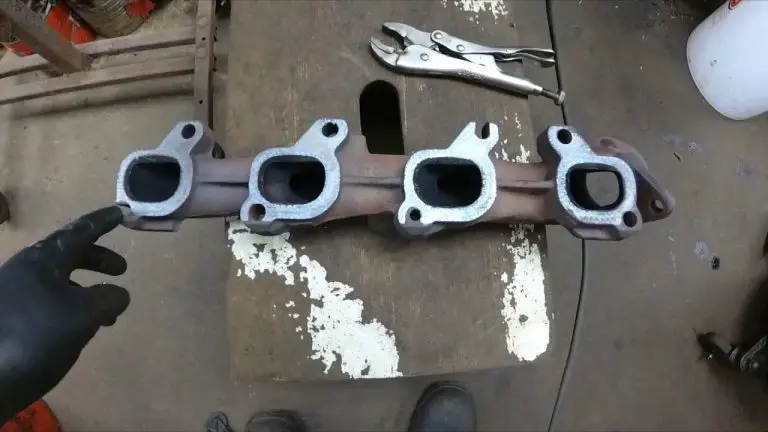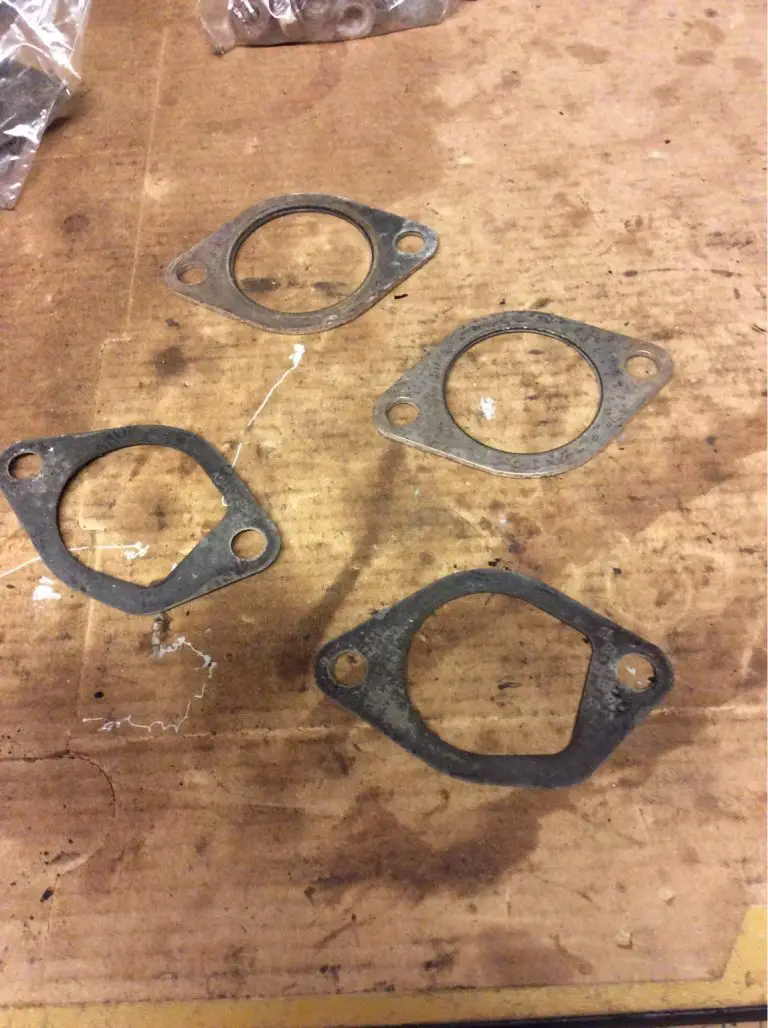Diy Exhaust Maintenance: Expert Guide for Home Mechanics to Maximize Performance
Maintaining your exhaust system is vital for home mechanics. Follow this step-by-step guide for diy exhaust maintenance.
Proper maintenance of your vehicle’s exhaust system is crucial to ensure optimal performance and fuel efficiency. Over time, rust, corrosion, and debris can build up in the exhaust system, leading to reduced engine power and potential leaks. Taking care of your exhaust system by following a diy maintenance routine can save you money on costly repairs and extend the lifespan of your vehicle.
In this guide, we will walk you through the step-by-step process of conducting exhaust maintenance at home. By following these simple instructions, even home mechanics with basic knowledge can keep their exhaust system in top shape, enhancing the overall performance and longevity of their vehicle.

Credit: www.jdpower.com
Importance Of Regular Exhaust Maintenance
Regular exhaust maintenance is highly important for home mechanics to ensure optimal performance of their vehicles. By keeping the exhaust system in good condition, you can enhance the efficiency of your car’s engine. Neglecting exhaust maintenance can lead to various issues such as reduced fuel economy, increased emissions, and potential damage to other engine components.
The significance of exhaust system performance cannot be overstated, as it directly affects the overall functionality of your vehicle. Taking the time to properly maintain your exhaust system can bring about long-term benefits, including improved fuel efficiency, prolonged engine life, and reduced repair costs.
By following a step-by-step maintenance guide, you can easily keep your exhaust system in top shape and enjoy a smoother and more reliable driving experience. Emphasizing the importance of regular exhaust maintenance is crucial for all home mechanics to keep their vehicles running smoothly.
Signs Of Exhaust System Issues
Exhaust system issues can be identified by various common indications, such as loud and unusual noises during acceleration or idle. Another sign is the presence of a strong smell of gasoline or sulfur. Additionally, if the exhaust pipe is visibly damaged, corroded, or hanging loosely, it may indicate a problem.
Pay attention to reduced fuel efficiency or a decrease in engine power, as these can also be linked to exhaust system issues. Promptly addressing these problems is crucial to prevent further damage to your vehicle and ensure optimal performance. By taking quick action and conducting diy exhaust maintenance, home mechanics can save on costly repairs and extend the lifespan of their exhaust system.
Remember, regular inspection and maintenance are key to keeping your exhaust system in top shape and avoiding potential complications down the road.
Diy Exhaust Maintenance Tips
Performing regular diy exhaust maintenance is crucial for home mechanics. Start by thoroughly inspecting the exhaust system to identify any leaks or cracks. Check the hangers and brackets to ensure they are secure and in good condition. It’s also important to examine the exhaust manifold and gaskets for any signs of damage.
To clean the exhaust system efficiently, remove accumulated dirt and debris. Take special care to clean the muffler and pipes properly. When cleaning the exhaust tips, keep in mind some useful tips. Insulating the exhaust system is vital, so make sure to understand the importance of insulation materials and choose heat-resistant products wisely.
Follow step-by-step instructions for proper installation. Lastly, don’t forget to lubricate and tighten the exhaust components as needed. Identify the components that require lubrication and use appropriate lubricants. Ensure that all exhaust parts are properly tightened for optimal performance.
Expert Advice For Exhaust System Upgrades
Upgrading your exhaust system with aftermarket options can yield several benefits. When selecting the right upgrade, there are a few considerations to keep in mind. To improve sound and flow, installing a performance muffler is a recommended step. Not only does it enhance exhaust performance, but it also provides step-by-step instructions for easy installation.
Additionally, adding a catalytic converter cleaner to your exhaust system is crucial for emissions maintenance. Understanding the role it plays and following the instructions for its addition will help keep your vehicle environmentally friendly. By following these expert suggestions, home mechanics can confidently take on diy exhaust maintenance.
Frequently Asked Questions Of Diy Exhaust Maintenance: Step-By-Step Guide For Home Mechanics
How Often Should I Clean My Exhaust System?
It is recommended to clean your exhaust system every 6-12 months or after 10,000-15,000 miles, depending on your driving habits and the condition of the system. Regular cleaning helps maintain optimal performance and prevents build-up of carbon deposits.
What Tools Do I Need For Diy Exhaust Maintenance?
For basic exhaust maintenance, you’ll need a wrench, pliers, jack stands, penetrating oil, rust dissolver, a wire brush, and safety goggles. If you plan to replace parts, additional tools may be required, such as a cutting tool and replacement gaskets.
How Do I Diagnose Exhaust System Problems?
Common signs of exhaust system issues include loud noises, black smoke from the exhaust pipe, decreased fuel efficiency, and a foul smell. To diagnose the problem, visually inspect the system for leaks, rust, or damage, and listen for any unusual sounds while the engine is running.
Can I Fix Exhaust Leaks At Home?
Small exhaust leaks can sometimes be repaired at home using a sealant specifically designed for high heat applications. However, it is important to keep in mind that this is a temporary solution, and it is advisable to replace damaged parts to ensure proper functioning and safety of the exhaust system.
What Are Some Tips To Prevent Exhaust System Damage?
To prevent damage and maintain your exhaust system, avoid driving over rough terrain, be mindful of potholes, keep an eye out for warning signs, and schedule regular inspections. It is also important to refrain from excessive idling, as this can lead to carbon buildup and premature exhaust system deterioration.
Should I Seek Professional Help For Exhaust Maintenance?
While some basic maintenance tasks can be performed at home by experienced diy mechanics, it is recommended to consult a professional for more complex repairs or if you are unsure about the extent of the issue. An expert can ensure proper diagnosis and provide professional guidance for an efficient repair process.
Conclusion
Maintaining your exhaust system is crucial for the longevity and performance of your vehicle. By following this step-by-step guide, you can easily conduct diy exhaust maintenance at home. Start by identifying any signs of damage or wear, such as loud noises or decreased fuel efficiency.
Then, gather the necessary tools and materials, including safety equipment. Next, remove the exhaust system, inspect it thoroughly, and clean it to remove any debris or rust. Replace worn-out parts and reassemble the system carefully. Finally, test the exhaust for any leaks and ensure everything is working properly.
Regular exhaust maintenance will not only extend the life of your vehicle’s exhaust system but also prevent potential issues down the road. So, don’t wait any longer – give your exhaust system the attention it deserves and enjoy a smoothly running vehicle for years to come.


